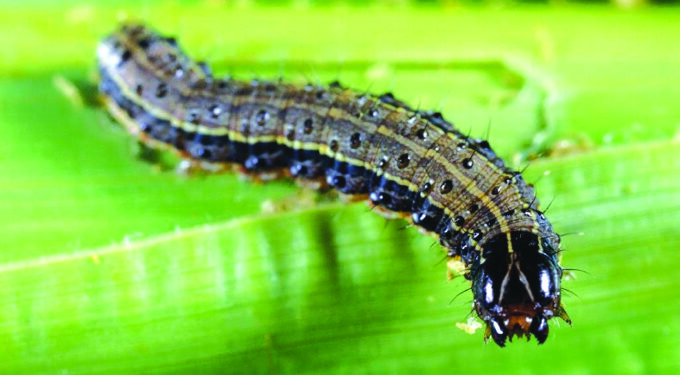As part of measures to detect any Fall armyworm infestation early and to take effective counter-measures before serious damage is done to crops, 170 traps have so far been set up across the country.
This is expected to minimise damage to crops, especially maize, in light of the expected El Nino conditions which are likely to enhance the invasion and breeding of these exotic pests.
The Ministry of Lands,Agriculture, Fisheries,Water and Rural Development has established 40 traps in Mashonaland West, 40 in Mashonaland East, and 15 each in Mashonaland Central, Matabelaland North, Matabeleland Suth, Masvingo, Midlands and Manicaland.
Migratory pest and biosecurity acting deputy director Simbarashe Nyamasoka recently said it is crucial to give farmers early warning of the arrival of any armyworm.
“As we are experiencing El Nino this farming season, we need to be alert and farmers should know that insects such as fall armyworm multiply in numbers. The El Nino has seen an increase in temperatures so the higher the temperatures the faster the rate of reproduction of these adult armyworms hence a need to control them. What we need now is for the traps to be monitored so that farmers see the moth. If they find any moths, they should report to the department of Agritex or the closest extension officer,’’ he said.
The African armyworm and fall armyworm are different caterpillars with the fall armyworm attacking maize fields and the African armyworm attacking pastures. There is need to scout more frequently so as to control both these caterpillars on time.
Fall armyworm is a migratory pest which attacks maize and has the potential to cause significant yield losses if not controlled.
It was first noticed in Africa in January 2016, causing major damage to crops in several West African countries, according to the International Institute of Tropical Agriculture.
Fall armyworm is a new pest in Zimbabwe and causes extensive damage to maize if not controlled properly and on time. The pest can have up to 10 to 12 breeding cycles in a season and can continue recurring after the first spray, so farmers need to be ready to react promptly.
Armyworm can also cause indirect losses to livestock if an outbreak occurs in pastures, which can cause starvation and severe poisoning when cattle graze on pastures recently infested by the armyworm. Armyworms march along the ground and attack crops, as they search for food. They are a threat to the country’s efforts of attaining food security in line with the Government’s push to cut the food import bill.
Source Zimsituation










